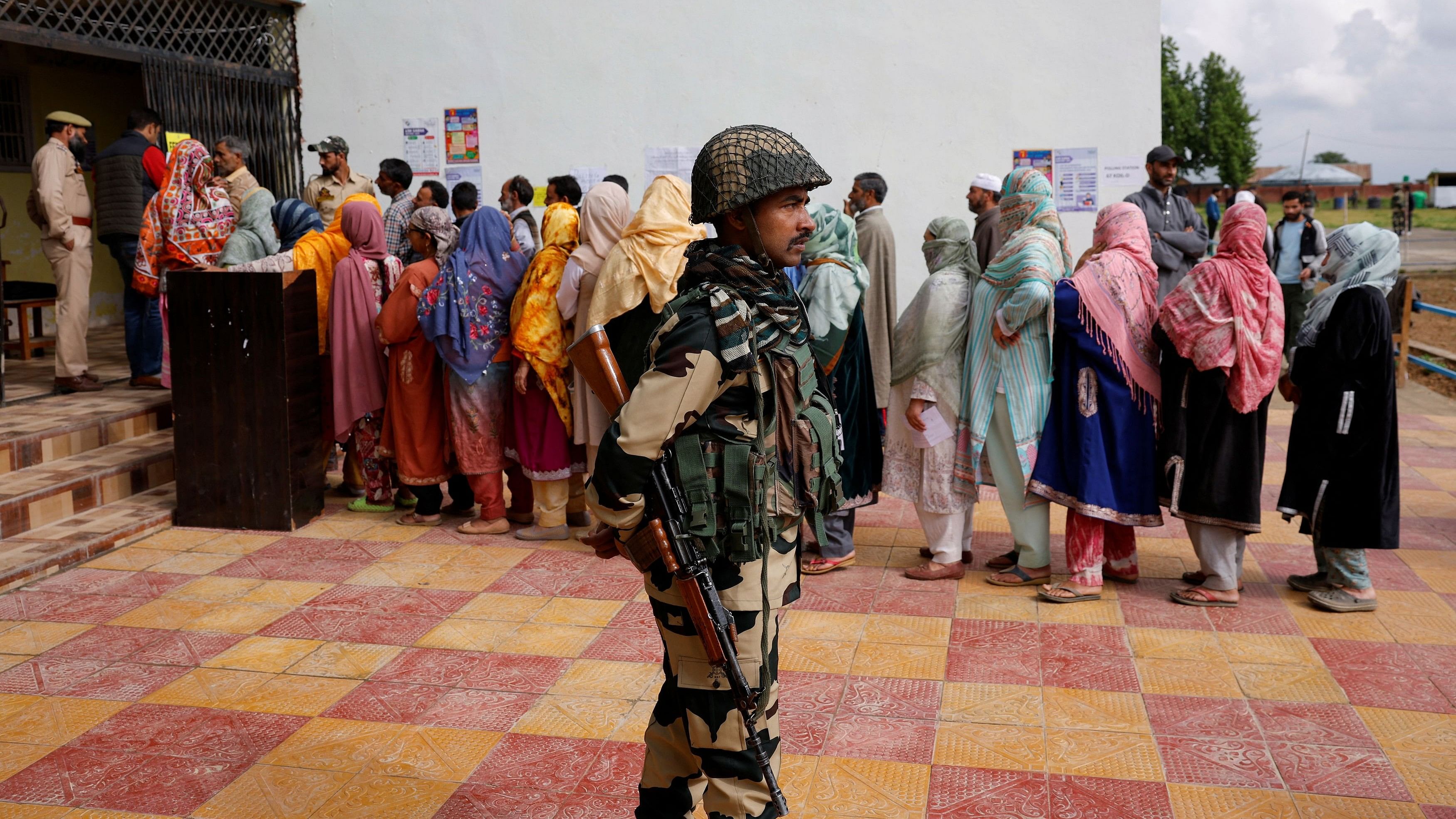
A security personnel stands guard at a polling station, during the fourth general election phase, in south Kashmir's Pulwama district, on May 13, 2024.
Credit: Reuters Photo
Srinagar: After years of intense conflict and a long history of separatist movement, Jammu and Kashmir is poised for an unexpected turn.
The recent announcement by Jamaat-e-Islami Jammu and Kashmir that it was ready for electoral comeback, if the Center revokes ban on it has taken everyone by surprise, marking another dent in the once-dominant narrative of separatism in Kashmir.
Just a few days earlier, Mirwaiz Umar Farooq said that the Hurriyat Conference was “not against the idea of elections.” He also said that the Hurriyat hasn’t issued a boycott call against the ongoing election, as it did in the past, because of “serious alterations in the ground situation” following the abrogation of Article 370 by the Central government in August 2019.
The changing socio-political climate and a growing fatigue among the population with endless strife has finally forced the separatists to rethink their strategy of boycotting the election process.
The response from New Delhi to separatists' offer to join the democratic process has been mute so far. Union Home Minister Amit Shah, who made a surprise visit to Kashmir on Thursday amid ongoing General Election in the country, didn’t make any comment on the separatists' offer to contest Assembly polls.
For the last five years, both Shah and Prime Minister Narendra Modi have been targeting dynastic regional parties, National Conference (NC) and People’s Democratic Party (PDP) for pushing youth of Kashmir towards terrorism, stone pelting and looting resources of the Union Territory.
The Home Minister is learnt to have stressed the rank and file of the BJP to ensure dynasty rule of the NC and the PDP was wiped out from the UT. The leaders of the NC and the PDP questioned the Shah’s visit to the valley in the middle of Lok Sabha elections and at a time when BJP is not contesting on any of the three seats in Kashmir.
If sources are to be believed, the BJP’s next move in Kashmir was to ensure that all separatist groups in Kashmir participate in the upcoming Assembly elections, which are due since 2018.
"By participation of the separatists in the poll process, the BJP not only wants to checkmate Abdullahs and Muftis of NC and PDP respectively, but also send a message to the international community that ground realities in Kashmir have changed after the abrogation of Article 370 for good," a source within the BJP told DH.
Noted political commentator Professor Gul Muhammad Wani said that the political climate in Kashmir valley was changing and in days to come “we should not feel surprised if other such groups join electoral politics.”
“Indian state is not ready to tolerate any sort of dissent. India’s status and stature is rising while on the other hand Pakistan is going down and it has its own impact on the political situation in Kashmir. Pakistan's current position can’t be ignored which has forced the separatists to rethink that they have to stand up on their own,” he told DH.
However, Prof Wani, said it was not for the first time that separatists groups were participating in the elections in Kashmir
"Till 1987, most of the separatist leaders participated in elections and took oath under Indian constitution," he said, adding that there is intense political competition for NC and PDP now which may increase in coming times leading to political fragmentation.